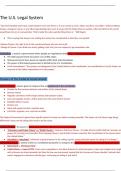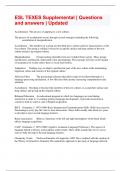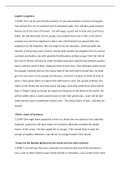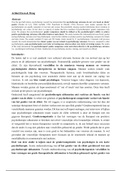Lecture notes
LA 201- Chapter 2- U.S. Legal System
- Module
- LA 201
- Institution
- University Of Mississippi
This is chapter 2 of the course LA 201. This chapter covers the US Legal System. These notes are very thorough, organized, and color-coded. They include notes taken from the book (black) and notes from in class (red). I made an A in this class and made 100's or above on all tests, including the fin...
[Show more]











